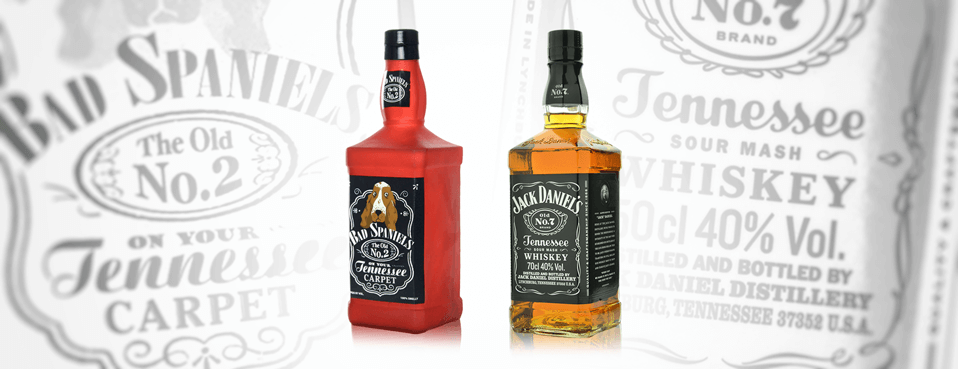Big Win For Cislo & Thomas in Ninth Circuit Court of Appeals Changes Trademark Law
Takeaway: Jeffrey Sheldon, Esq. and Katherine Bond, Esq. of Cislo & Thomas win Ninth Circuit case, establishing new law allowing plaintiffs to serve foreign defendants without needing to use the Hague Convention for foreign process.
The Ninth Circuit Court of Appeals issued a decision, setting precedent and resolving a split among the circuits regarding the interpretation of the term “proceedings” as recited in 15 U.S.C. §1051(e). The question presented to the appellate court was, “Do the procedures of Section 1051(e) provide a means of serving defendants in civil court proceedings affecting a trademark?”
In a U.S. civil lawsuit, it can be challenging and costly to serve a foreign defendant if the defendant does not have a U.S. agent or location. There is a foreign convention, the Hague convention, that allows for such service but it is slow and expensive, requiring documents be translated and the cooperation of a foreign government; think China. However, for defendants who seek trademark registration in the United States, 15 U.S.C. §1051(e) states that “notices or process in proceedings affecting the mark” may be served on the Director of the U.S.P.T.O. If this statute is interpreted such that “proceedings” includes civil litigation cases, 15 U.S.C. §1051(e) would offer an alternative way to serve foreign defendants in civil cases.
Cislo & Thomas attorneys Jeffrey Sheldon and Katherine Bond argued on behalf of San Antonio Winery, Inc. that this statute applies in Federal Court “proceedings” and not just Trademark Office proceedings. This position was further supported by counsel for the Department of Justice who submitted an amicus brief.
The Supreme Court has not ruled on fair use in art since 1994. Thus, this ruling will be monumental moment in copyright law.
“Fortunately, the timing was right and we had a lot of support. San Antonio Winery should be commended for taking up a cause on behalf of smaller businesses that may not have the resources or means to challenge foreign defendants or improper district court decisions. The U.S. Trademark Office had a vested interest based on the significant increase in foreign applicants over the past few years. Katherine and I were committed to making sure 1051(e) remained a viable option for service on foreign defendants in civil proceedings,” said Senior Partner Jeffrey Sheldon.
This favorable ruling confirms that 15 U.S.C. §1051(e) is a less costly and more efficient method (as compared to the Hague convention) for serving foreign defendants in civil lawsuits who have purposely availed themselves of the trademark laws of the United States.
Supreme Court Will Assess Patent Enablement Requirements In Amgen Case
Takeaway: The Supreme Court is assessing a case between competing cholesterol medications, which will review Section 112 of the Patent Act and the question of patent enablement.

For the second time in the law’s history, the U.S. Supreme Court has agreed to review Section 112 of the Patent Act. Biotech company Amgen is requesting that the court consider how much a patent must disclose in order to meet enablement requirements. The court will decide whether patent specifications must allow skilled artisans to “reach the full scope” of the invention, or whether the ability to “make and use” the invention is sufficient.
In February 2021, the Federal Circuit found that Amgen did not meet enablement requirements for two patents related to cholesterol medication. This meant that the Federal Circuit would not revive a previous verdict that Amgen won against Sanofi and Regeneron Pharmaceuticals over their competing cholesterol medications.
The reassessment of Section 112 of the Patent Act and the question of patent enablement could greatly affect the future of pharmaceutical patents, more specifically foundational and first-of-their kind medications. Pharmaceutical companies often file broad patents that are narrowed over time through research.
Supreme Court to Hear Jack Daniel’s Dog Toy Trademark Case
Takeaway: The Supreme Court has an opportunity to clarify the law on parodies of trademarks in this upcoming case between a famous whiskey company and a dog toy wholesaler.

The U.S. Supreme Court has agreed to hear a trademark infringement case between the famous whiskey company Jack Daniel’s and dog toy wholesaler VIP Products LLC for a dog toy called “Bad Spaniels.
In 2020, the Ninth Circuit said the “Bad Spaniels Silly Squeaker” dog toy is covered by the First Amendment, as its resemblance is a parody of the famously recognizable whiskey bottle. Jack Daniel’s filed a petition to the Supreme Court, arguing that the Ninth Circuit should not have upheld a lower court decision granting summary judgment to VIP Products LLC.
VIP urged the Supreme Court last month to reject the case, stating they have “never sold whiskey or other comestibles, nor has it used ‘Jack Daniel’s’ in any way (humorously or not).”
Initially an Arizona federal judge ruled that the dog toy infringed on the Jack Daniel’s trademark. The Ninth Circuit reversed that decision, concluding that the toy was “expressive.” In 2021, the Supreme Court refused to hear the case, and it returned to the district court, which granted summary judgment to VIP on remand. The Ninth Circuit affirmed this decision without an opinion.
After several amicus briefs, including the International Trademark Association, backed Jack Daniel’s, the Supreme Court decided to take on the case. Many hope this will give an opportunity to clarify the law and reconcile the line between parodies and trademark protection.
Photo Credit: news.bloomberglaw .com/ ip-law/jack-daniels-says-high-court-must-tell-ninth-circuit-bad-dog
Ninth Circuit Affirms Punchbowl News Trademark Win
Takeaway: The Ninth Circuit ruled that Punchbowl News is considered an expressive work and entitled to First Amendment protection.
The political publication Punchbowl News won in a trademark infringement lawsuit filed by an event planning company with the same name. The publication registered the “Punchbowl” trademark after the Ninth Circuit ruled that the news outlet was protected under free speech. The appeals court was persuaded that the news outlet’s name did not violate the intellectual property rights of the online event invitation and greeting cards company and would not mislead potential consumers.
The Ninth Circuit also held that the Punchbowl News name was entitled to enhanced First Amendment protection as part of being an “expressive work” and that the start-up could not meet the heightened standard of showing that the name was explicitly misleading to consumers.
Supreme Court to Decide Extraterritorial Reach of Lanham Act
Takeaway: The Supreme Court will decide whether the Lanham Act applies abroad to purely foreign sales.
The U.S. Supreme Court granted certiorari to review the case Abitron Austria GmbH et al. v. Hetronic International Inc. This Supreme Court decision could clarify the Lanham Act’s geographic scope.
The petitioners are German and Austrian companies who are appealing an Oklahoma jury’s award for the U.S. based company whose products the foreign companies used to sell throughout Europe before the relationship ended. The U.S. company claims that the foreign companies then reverse engineered its products and continued to sell them abroad to European customers without permission.
The Supreme Court will decide whether the court of appeals erred in applying the Lanham Act extraterritorially to petitioners’ foreign sales that never reached the United States.
Cislo & Thomas LLP Spotlight
Cislo & Thomas LLP in U.S. News & World Report’s the Twelfth Edition of the “Best Law Firms” Ranking
We are proud to announce that we have been honored as a Tier 1 Best Law Firm recipient in the 2022 Best Lawyers of U.S. News & World Report!
We always strive to provide Quality Client Care® in helping you achieve your intellectual property goals, and we owe this honor to our incredible clients. So thank you!




